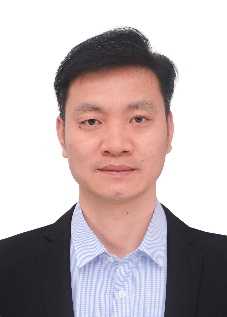Invited Speaker

Prof. Huafeng Xiao
Southeast University, China
Bio - Huafeng
Xiao was born in Hubei Province, China. He received the B.S., M. S. and
Ph.D. degrees in electrical engineering from Nanjing University of
Aeronautics and Astronautics (NUAA), Nanjing, China, in 2004, 2007 and 2010,
respectively.
He joined the Faculty of power electronics in 2011, and is currently a
Professor at the College of Electrical Engineering, Southeast University
(SEU), Nanjing, China. From 2015 to 2016, he was a Postdoctoral Fellow with
the Department of Electrical and Computer Engineering, Ryerson University,
Toronto, ON, Canada. From Aug. 2016 to 2017, he was a Postdoctoral Fellow
with the Department of Electrical and Computer Engineering, McGill
University, Montreal, QC, Canada.
Dr. Xiao’s research interests include transformerless photovoltaic power
systems, high power wind power system, and electricity-hydrogen coupling
system. Dr. Xiao has authored more over 100 technical papers in Journals and
Conference proceedings, and held 50 China patents and 2 US patent, and
authored four books as well.
Speech Title: Advanced Control Techniques of
Grid-Connected Inverters for renewable energy
Abstract: Grid-connected inverters are the
core components for the new energy access to the grid, and their control
performance determines the dynamic performance, power quality, and stability
of renewable energy generation system. Proportional, integral, and
derivative controllers are the three basic control units that can be used in
grid-connected inverters. Proportional and integral controllers are widely
used in power electronics equipment and can process both present and
previous information. Differently, the derivative controller can predict the
changing trend of the present information, but can be easily affected by the
switch noise of power electronics equipment, making its use limited.
Nevertheless, the predictive function of the derivative controller is of
great value for improving the dynamic performance of renewable energy
generation system, power quality, and stability in complex power grid
scenarios. It is also significant for extending the control performance
boundary of power electronics equipment and promoting the development of
control technology. Therefore, this speech focuses on the research of new
methods for using derivatives in power electronics equipment, and carries
out applied research around power control and signal processing tecknologies
to improve the control performance of grid-connected renewable energy
system.